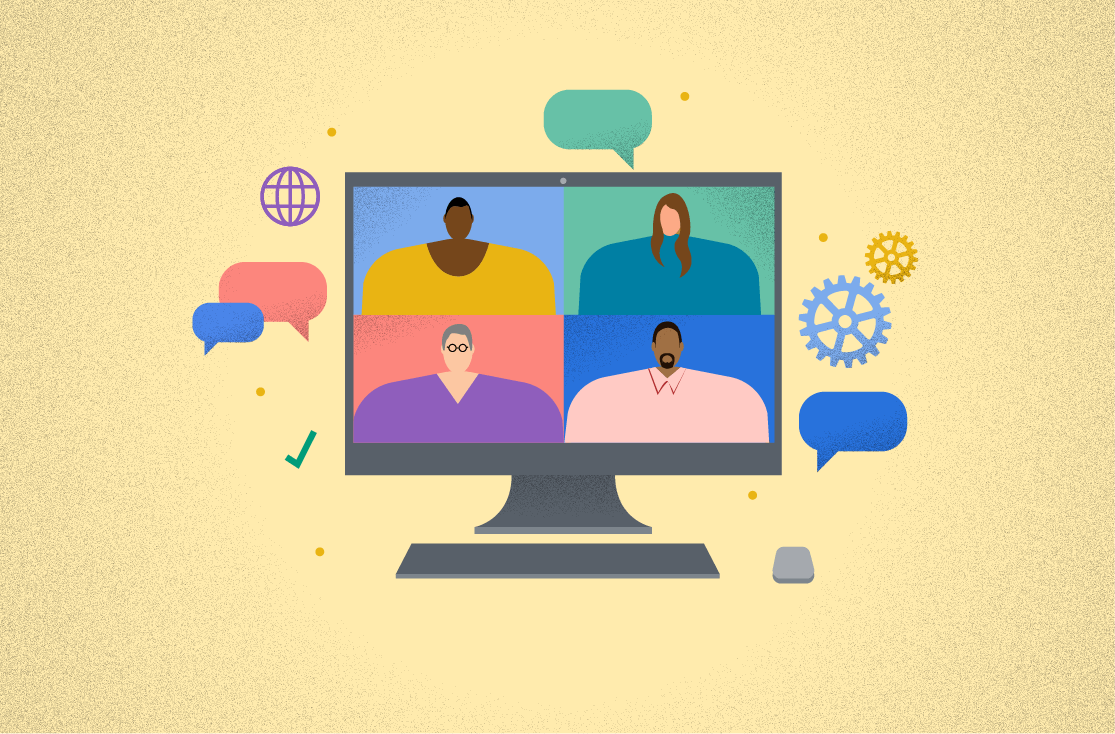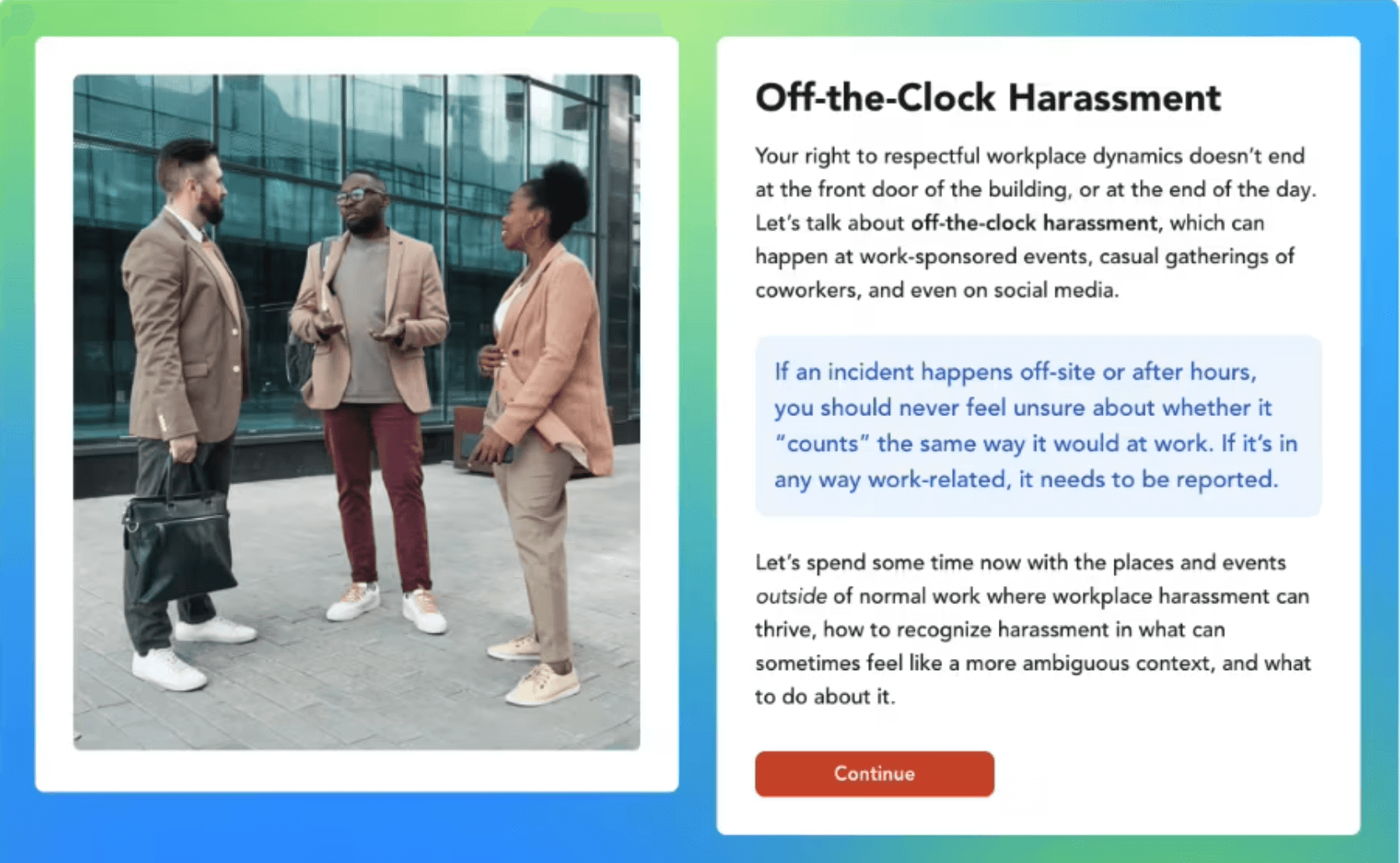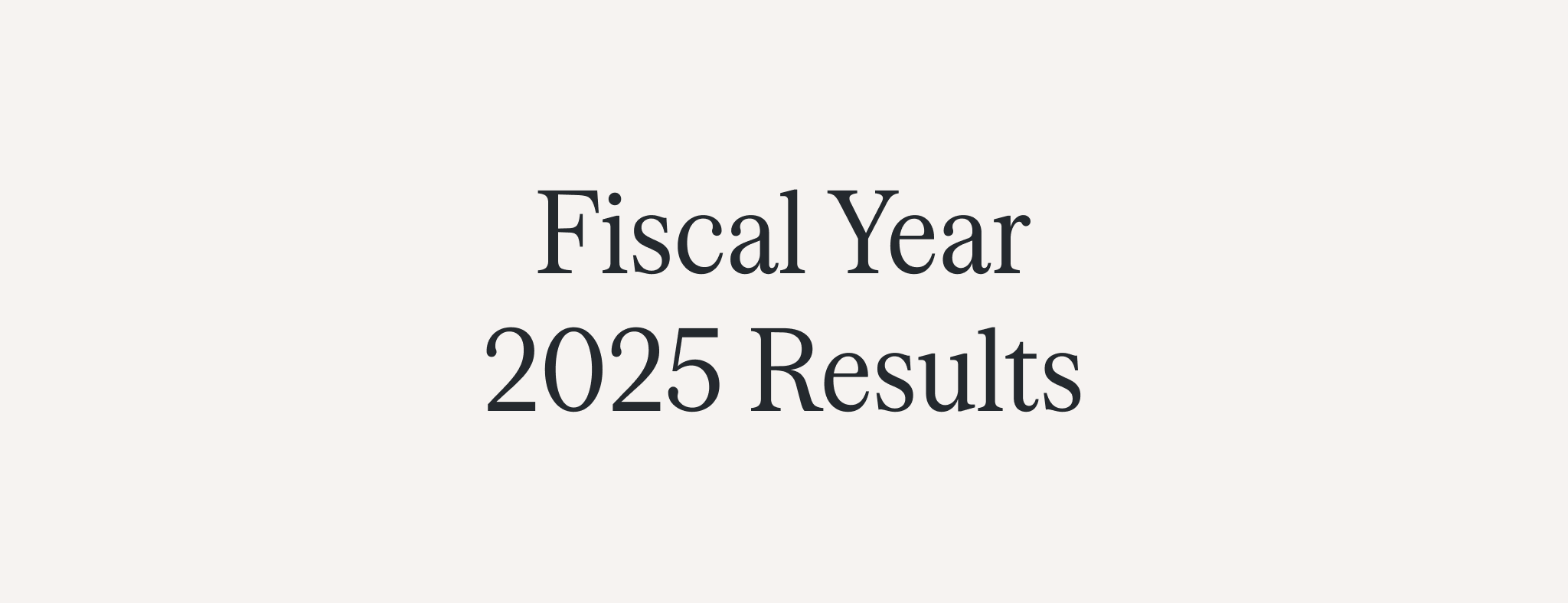A successful WFH culture needs good DEI programming, in more ways than one.
In the past two years, countless organizations worldwide have made major adjustments to their company values, goals, and overall focus. And in the US, two often-sidelined priorities rose to the top: the need for better Diversity, Equity, & Inclusion (DEI) programming and a sustainable Work from Home (WFH) option.
There are many things to consider for both of these topics (and let’s not understate the amount of consistent work it takes to make a healthy, culture-forward impact for both), but for many of us working in hybrid or remote offices, one question continues to return to the conversation: how, in today’s world, can we keep our DEI work moving forward through our home offices? It’s no surprise that remote work and DEI initiatives intersect in a number of interesting ways, and it’s highly likely that we’ll continue to talk about the two in tandem for the foreseeable future.
Let’s go over what DEI is, why DEI matters in shifting work structures, who benefits most from WFH, and the tools we can use to build more equitable workplaces together to make DEI work more manageable IRL and from our home offices.
What Is Diversity, Equity, and Inclusion (DEI) Programming?
Diversity, equity, and inclusion are used to describe the programs and policies that advocate for representation among individuals of different genders, sexual orientations, religions, ages, races, ethnicities, abilities, disabilities, and cultures.
DEI makes the workplace a better place and (perhaps more importantly) the world a better place. It brings together people of different backgrounds, perspectives, and ideas to build stronger teams and businesses. Everyone has something valuable to contribute, and DEI breaks down barriers and opens doors to not just let it happen—but make it happen.
However, DEI doesn't just happen by accident—its requires intentional steps and actions, and these actions collectively become your DEI programming.
There aren't any legal DEI requirements that businesses need to meet or follow, yet, most forward-thinking businesses have made commitments to make DEI a priority. Part of this commitment includes DEI training programs: courses meant to help employees, managers, hiring managers, and recruiters become more aware and take better action.
Here are a few things DEI programming can include:
- DEI requirements: Collect data and set goals for where you'd like your DEI efforts to lead.
- DEI training program: Train your employees (and yourself) on how to make your remote workplace diverse, equitable, and inclusive.
- DEI strategic plan: Create a strategy for how you plan to improve DEI at your workplace, and hold yourself accountable by tracking and reporting on your efforts.
Why DEI Programming Matters in Hybrid or Remote Offices
We all seek (and deserve) a sense of belonging in both our personal and professional lives. Introverts and extroverts alike enjoy interacting with other people. But working remotely can make finding and connecting with our community a tricky task.
Some offices have settled into a hybrid dynamic for the foreseeable future, where employees work both from home and/or the office, with many workers having a choice of when to come to work in person–or whether they go into the office at all. In these environments, DEI efforts can feel like they’ve stalled out due to a lack of consistent face-time from those who choose to work from home more often.
This further affects DEI efforts because many parents and caregivers, people of color, people with disabilities, and others may find that home is not only a more effective place for them to get work done but is also more conducive to their daily needs and routines.
Virtual Microaggressions
Even in virtual/remote work environments, microaggressions still exist. Coworkers being able to see each others’ homes in virtual meetings is one big way that microaggressions can sneak into the remote workplace.
Everyone in the office–but especially leaders–must keep the principles of DEI in mind, so that all employees feel valued and included, whether workers are in the office, remote, or hybrid. The most important part of this is ensuring that unintentional microaggressions are not sneaking their way into virtual interactions at work. One simple way to avoid and prevent microaggressions is to rephrase a question or reframe comments as conversations, for example, discussing how the constant stream of video calls has an effect on everyone mentally.
Equitable and Inclusive Remote Work: Who Benefits the Most from WFH?
By seeing how workers from different backgrounds have benefitted from remote or hybrid work over the last two years, we can better understand their needs in any work environment or dynamic. So whom (generally, this is by no means a comprehensive list) has benefitted the most?
- Parents & caregivers, who may find it difficult to find adequate alternatives for caregiving (especially during swells in COVID outbreaks), which can make commuting to and working in an office that much more stressful.
- People of color, who may find working from home to be a safer environment for their mental health, as it can mitigate microaggressions targeting their backgrounds and cultures.
- People with disabilities. Differences in mobility can create an added layer of difficulty for employees to get to offices that don’t have accessible entrances, bathrooms, and other legally required considerations. This is especially worth keeping in mind if your company has done a lot of remote hiring, since questions about office accessibility might not have come up in the interview process since the job started as remote.
- LGBTQ+ People. As our personal and professional lives collide in new ways, it’s important to remember that not all LGBTQ+ coworkers will want to discuss their personal lives or living situations in the workplace, including a virtual one. Even in supportive workplaces, LGBTQ+ people who have had negative experiences where their gender, gender expression, and/or orientation were targeted may not feel comfortable sharing details about where they live and whom they live with.
Steps You Can Take to Make Difficult DEI Work Easier for Everyone
Doing Diversity, Equity, and Inclusion work can at times feel exhausting. These days, a whole slew of institutions and companies are having candid, and long overdue, conversations about what DEI means in the workplace.
Even so, improving our workplaces can often feel like wading through murky waters as we delve into the deeper complexities of the work. This can especially be the case when those doing the work are folks with rising identities who might already deal with identity-based aggressions in other parts of their lives.
- Remember that while being open to conversations about people’s various identities is vital to establishing a sense of belonging in the workplace, it doesn’t mean requiring someone to bring their whole identity to work all the time.
- It's okay to take a break. Though DEI work never rests, as humans, we absolutely need to. So if you feel worn out, you probably are. Taking time to rest—mentally and physically—is essential.
- Lean on folks in your network whom you trust and who may have greater immediate bandwidth to address issues and delegate where appropriate. Let them know you would love help pushing forward on something specific you noticed, even if you don’t have the time or mental capacity to do it at that moment.
- Finally, celebrate your wins when you have them. DEI victories can be hard-won and complex to execute. When your team comes together to create a more inclusive workplace, even in ways that might feel small, acknowledging that improvement is exciting. These moments of celebration and recognition can encourage everyone to keep improving our workplaces together.
Improve Your Workplace With Top-Notch DEI Training Programs
The past few years have been a stark reminder of the growth we still have to do, both in the broader cultural conversation and in the day-to-day conversations we have at work.
It’s no surprise to anyone reading this that we have a long journey ahead of us. But by working together, supporting one another through difficult times, thinking critically and empathetically, celebrating our big and small victories, and learning from where we miss the mark, we’re guaranteed to wind up somewhere far better than when we started.
Looking for a best-in-class DEI training program that works well with hybrid and remote teams? Check out Ethena’s Diversity, Equity, & Inclusion course, or talk with someone from our team about DEI programming.








